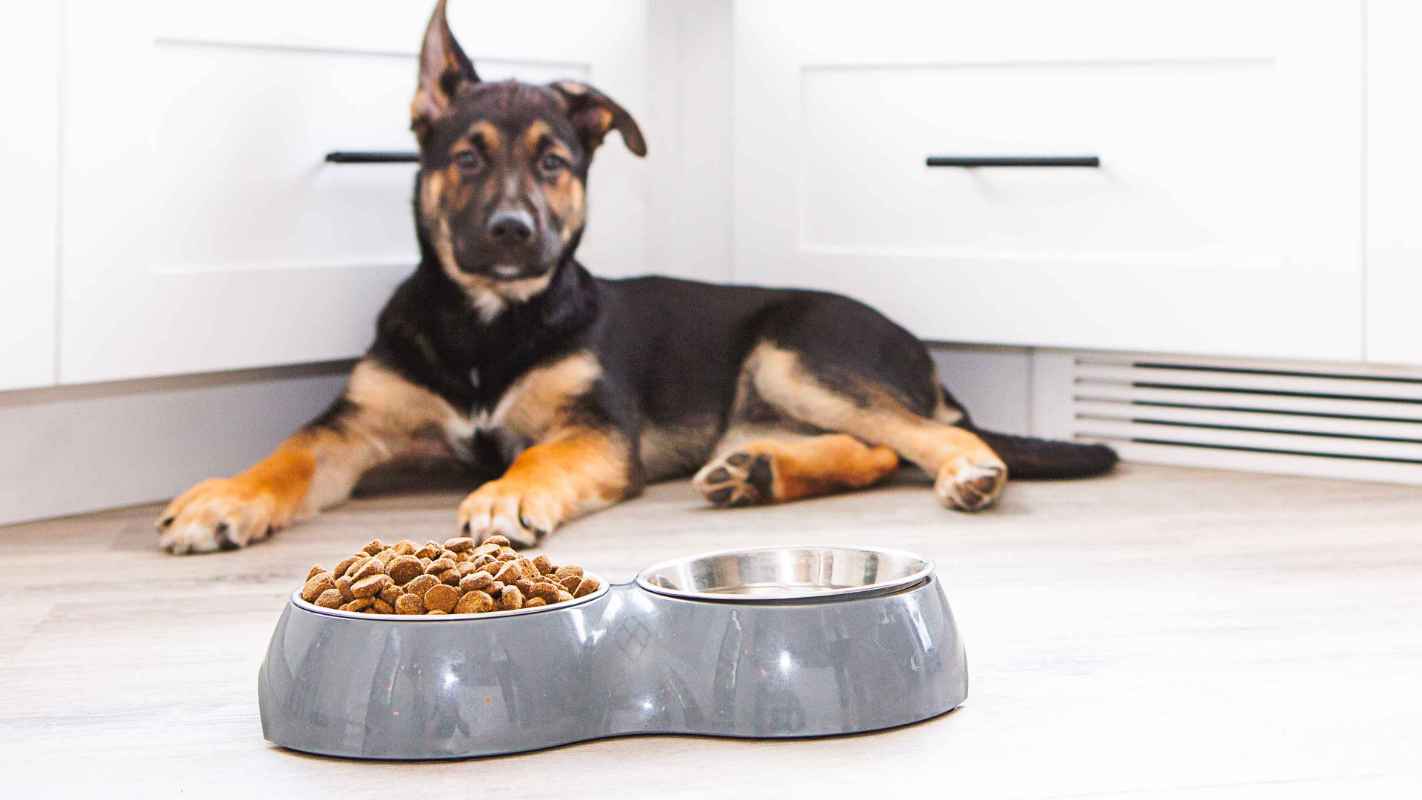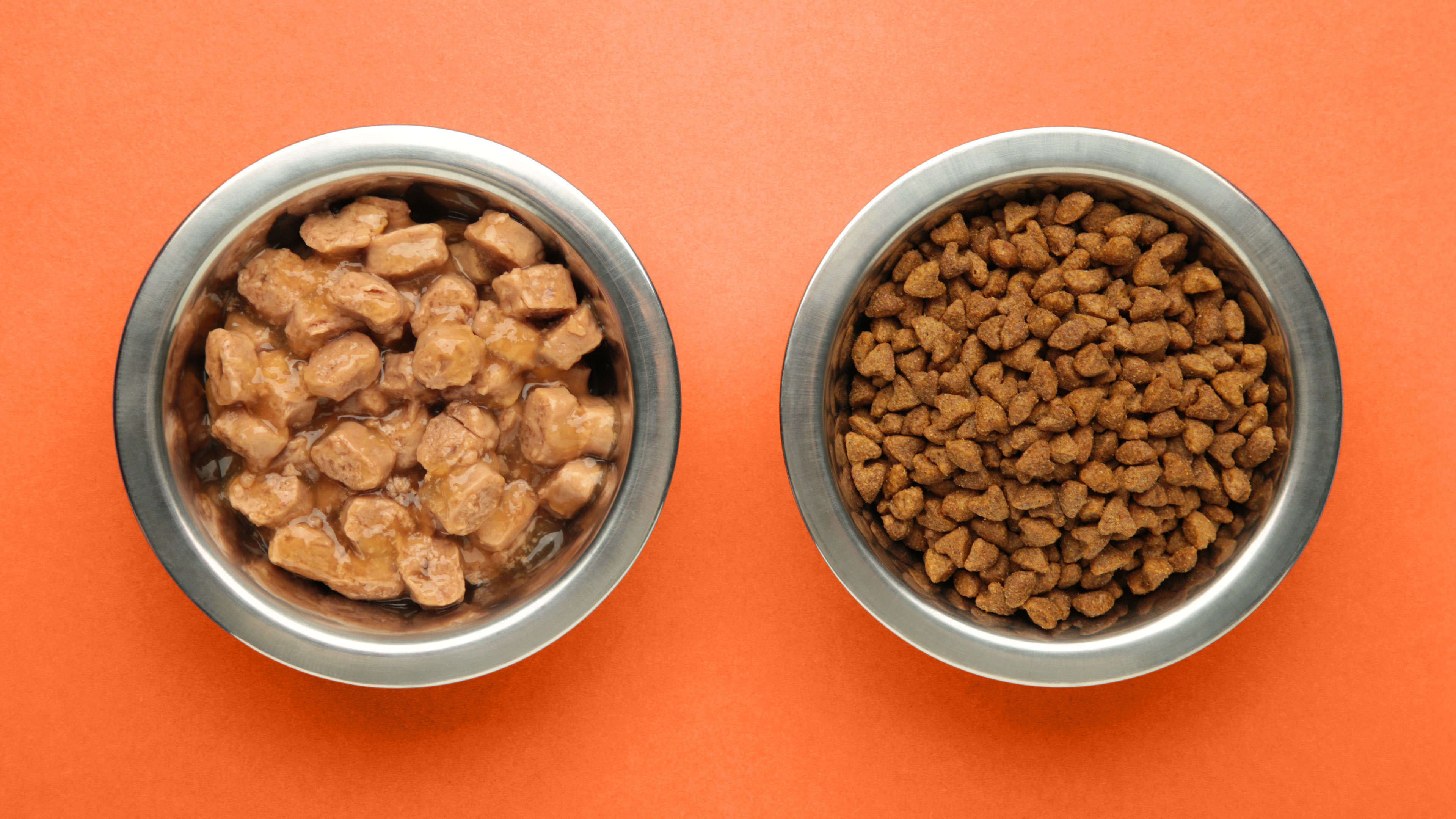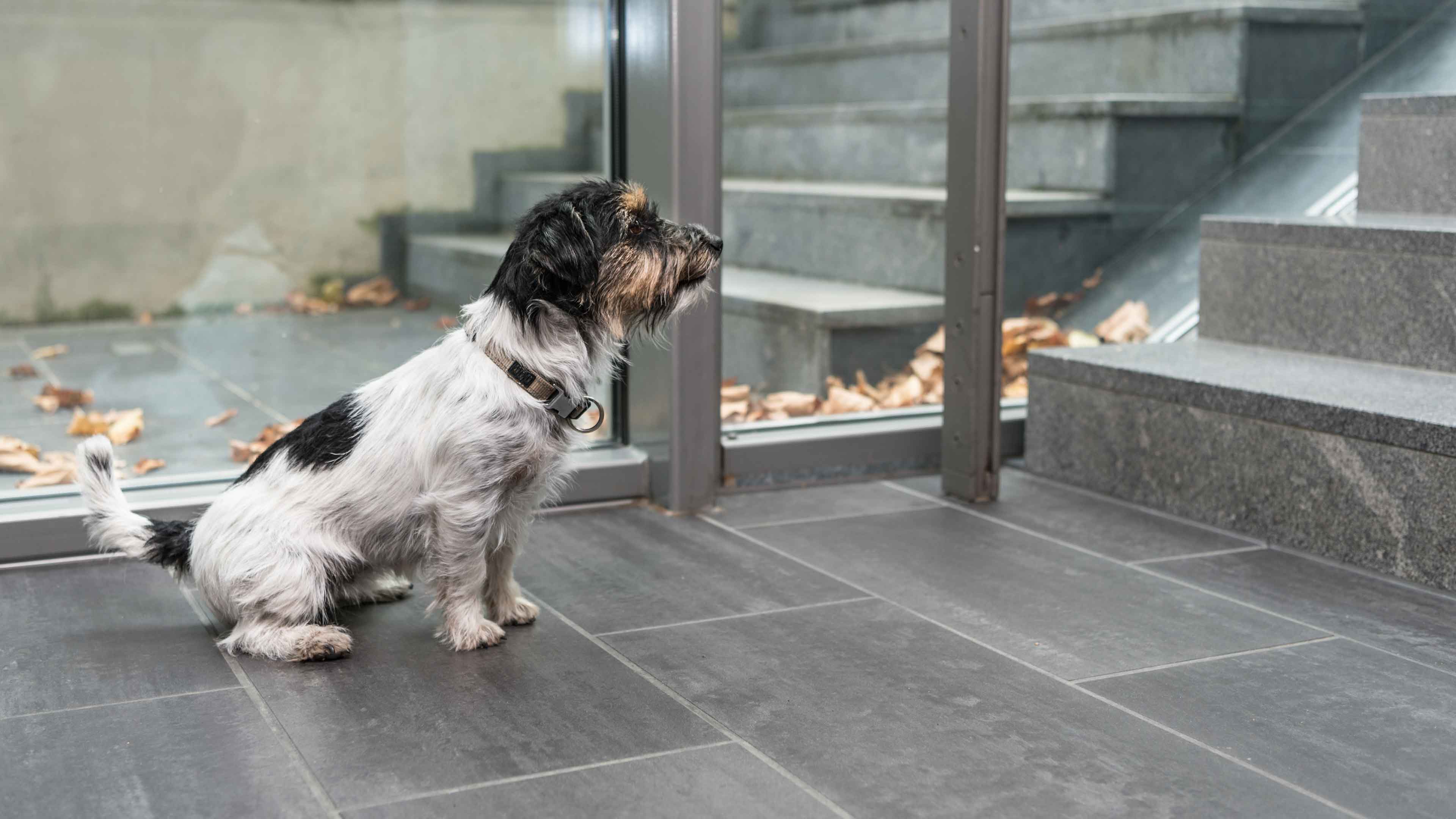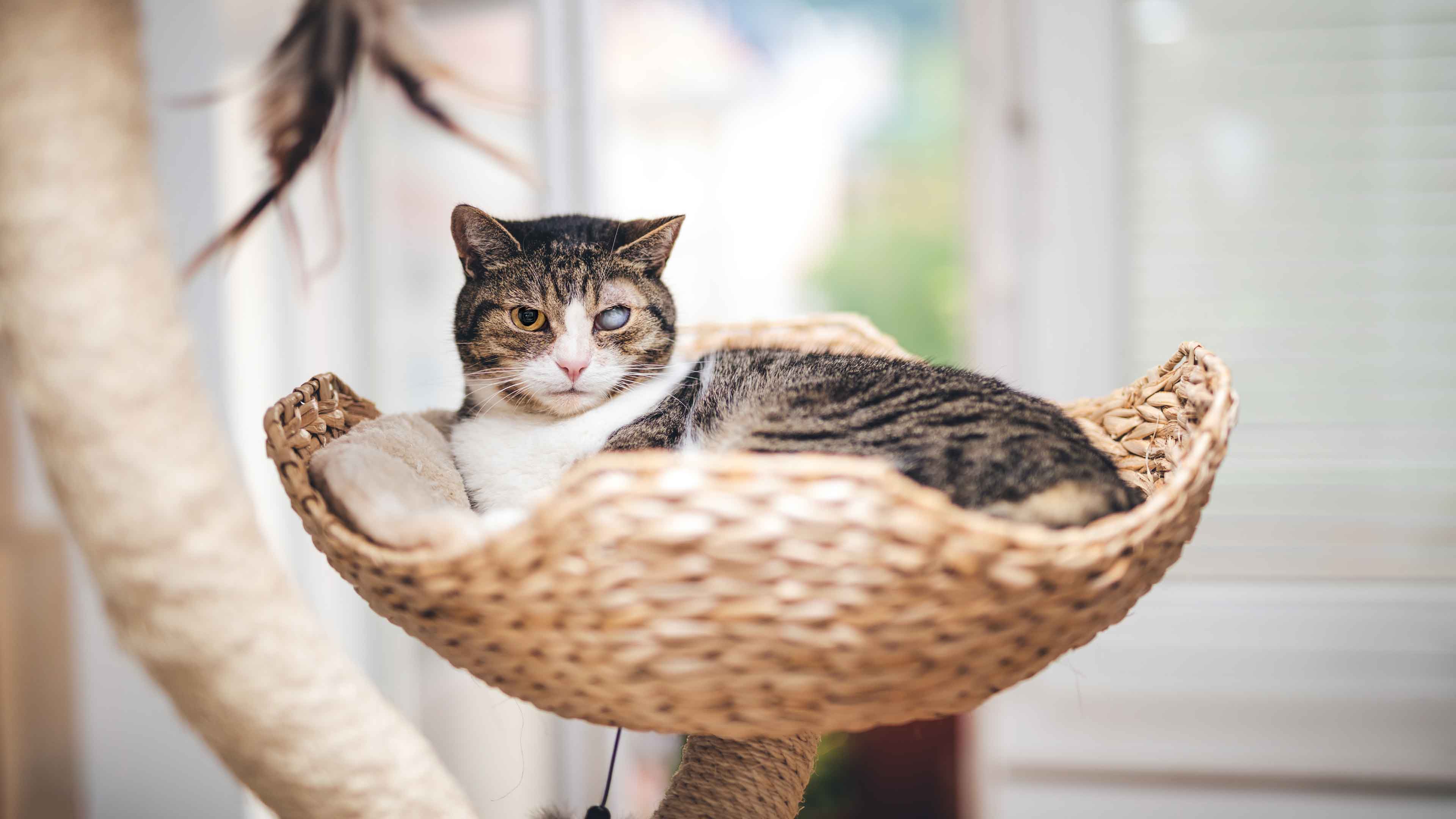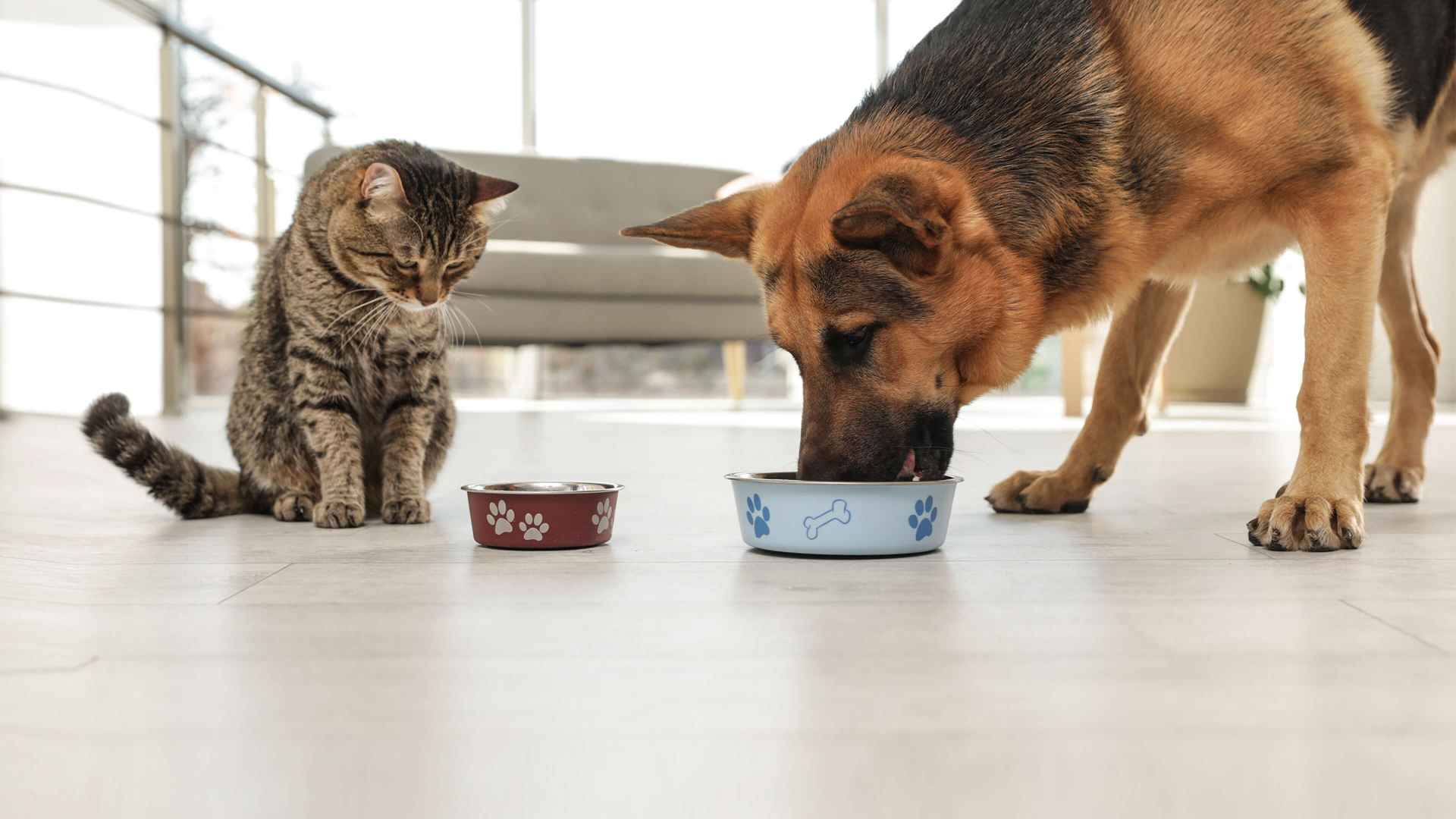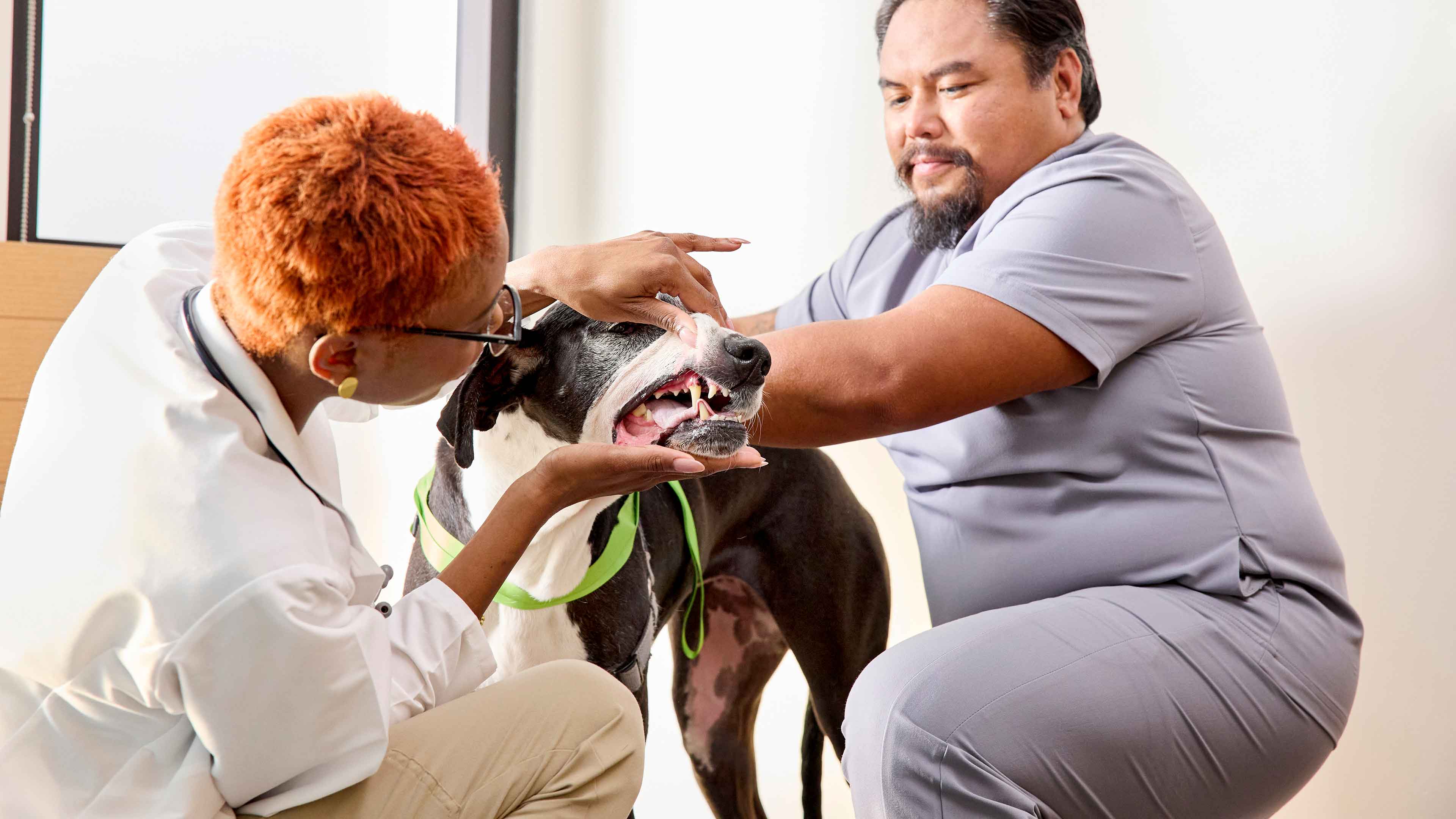ways to improve your pet’s gut health
Hi, I’m Heidi Cooley, DVM, a doctor here at Banfield for over 19 years. In this blog, I’d like to go over common digestive issues we see in pets and how you, as their owner, can support them in having a healthy gut.
Common digestive conditions in dogs and cats
Here are some of the gut issues we commonly see:
- Gastroenteritis: This condition is caused by inflammation of the gastrointestinal (GI) tract and can be brought about by stress, infection, disease, or eating things your naughty pet shouldn’t eat.
- Pancreatitis: This inflammatory disease can be caused by a poor diet (especially one high in fat), obesity, diabetes, trauma, toxins, or hypothyroidism.
- Protein-losing enteropathy (PLE): Certain breeds of dogs such as Yorkshire Terriers and Wheaten Terriers have a predisposition to this condition, which causes them to lack pancreatic enzymes, and it's much rarer in cats. It’s a serious condition that needs immediate medical attention.
- Parasites/worms: Parasites such as roundworms, hookworms, whipworms, and tapeworms can infect your dog’s or cat's intestinal tract and cause inflammation or blockage.
- Inflammatory bowel disease (IBD): IBD doesn’t always have a discernible cause, but sometimes it can be triggered by food allergies or sensitivities.
- Colitis: Colitis is inflammation in the large intestine and can be caused by irritable bowel syndrome, food allergies, infections, worms/parasites, or eating a big no-no.
- Toxins: If your pet gets hold of toxic foods such as grapes, chocolate, or garlic, it could cause stomach upset or even death. It’s important you call your vet right away if you suspect your pet has eaten something they shouldn’t have. (You can find a complete list of toxic food and plants for your pet here.)
- Intestinal blockages: Twisting of the intestines, major parasite infiltration, severe inflammation, or foreign objects can all be causes of a blockage.
- Cancer: Though not as common, a cancerous mass in the GI tract could cause inflammation or obstruction that creates intestinal upset.
Symptoms to keep an eye out for
Signs that your pet has something going on in their gut are:
- Diarrhea
- Vomiting
- Weight loss
- Enlarged abdomen
- Lethargy
- Lackluster coat
- Being picky with their food/loss of appetite
- Worms in their stool
- Eating poop or grass
- Blood in their stool
What are ways owners can support their dog’s or cat's digestive health?
While some of your pet’s intestinal issues might be out of your control, there are ways to practice good food and water safety that could help avoid issues such as toxin exposure, parasites, and stress.
- Make sure your pet always has access to clean water and do not let them drink out of streams, lakes, ponds, or other bodies of water where toxins can lurk.
- Do not share raw or undercooked food with your dog or cat, and make sure that toxic foods such as chocolate, or plants such as rhododendrons, are out of your pet’s reach.
- Make sure to clean your pet’s food and water bowls regularly.
- Don’t feed your pet expired foods, and make sure their food is sealed in airtight containers so bugs can’t get in.
- Limit new foods, and make sure that table scraps and garbage cans are out of their reach.
If you suspect your furry pal is experiencing a gut issue, this is a perfect opportunity to utilize Pet Chat™ or a Virtual Visit through your pet’s Optimum Wellness Plan. Otherwise, please give your veterinarian a call to discuss next steps.
 Mites and mange
Mites and mange Podcast - Not Just Fluff
Podcast - Not Just Fluff
